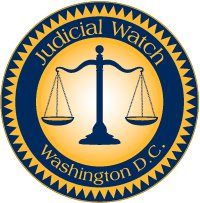Judicial Watch Sues DOJ Over 2011 UIGEA Interpretation

The US Department of Justice (DOJ) is currently involved in an ugly lawsuit with conservative watchdog group, Judicial Watch, over the 2011 legal ruling which opened the floodgates for online gambling in the country. According to the DOJ’s reinterpretation of the USA’s Wire Act (1961) and UIGEA (2006), only sports gambling was banned under the law, therefore giving a green light to states within the US to fully legalize poker and gambling industries of their own. However, anti-gambling groups and campaigners are far from happy, and in October 2014 Judicial Watch actually called the US Department of Justice out publicly, asking, in no uncertain terms, for all legal documents regarding that very ruling. The Freedom of Information Act (FOIA) request was subsequently ignored by the DOJ, despite it seeking:
“Any and all records concerning, regarding, or related to the December 23, 2011 ruling to legalize non-sports betting over the internet, including but not limited to any records on the legal basis for the ruling under the Unlawful Internet Gambling Enforcement Act of 2006.”
Who Is Judicial Watch?
Judicial Watch was founded by a conservative attorney by the name of Larry Klayman back in 1994. Klayman, fed up with the US government’s typical political answers which basically involved answering questions with other questions, decided to start the group to make the US government accountable for their actions. Judicial Watch even tackled former president Bill Clinton, bringing 18 separate lawsuits against his administration, claiming that the former president persuaded the IRS to audit them.
Federal Laws Regarding US Gambling
From the years 2006 to 2011, the US Justice Department held a firm stance regarding online gambling, suggesting that poker, sports betting, and casino betting online were all illegal. Because of this, UIGEA was forced to prosecute various electronic money transfer sites, who had personally handled cash which may have been obtained via online gambling, online casinos, sportsbooks, and card rooms.
Legality Of Sports Betting
According to the DOJ, the Wire Act and the UIGEA could only be relevant to forms of sports gambling, which was in part thanks to a section of the Wire Act stating that sports betting was, in fact, its number one priority. Only bookmaker business was banned under this law, though, with the DOJ ruling pointing out that back in 1961 there was no possible way of predicting that online casinos and bookmaker sites would be around. Therefore, using that law to ban these websites should be considered almost laughable.
How About Online Lotteries?
The 2011 DOJ ruling also legalized online lottery sales in certain states, which was the initial reason the federal executive department was asked to rule on the case. Judicial Watch stated back in July of this year, that they had filed its lawsuit in order to gain insight into that opinion, as the DOJ apparently ignored the 2014 petition started by Judicial Watch to obtain that very paperwork. The Justice Department were given until the 18th of February to comply with their requests, otherwise they would face a lawsuit. As Tom Fitton, currently the president of Judicial Watch explains:
“When the Justice department reverses its own interpretation of a federal statute so quickly, the US people have a right to know why. Given that they’re willing to violate federal records laws, rather than disclose information, US citizens can assume that corruption is their main motives to legalize widespread internet gambling”.
Seeking An Online Gambling Ban
Despite the protestation of Judicial Watch, there is plenty of evidence to suggest the DOJ did not suddenly reverse its opinion of the Wire Act, and the idea the law only related to sports betting was explored in a 2002 case in which the Fifth Circuit Court of Appeals ruled that the Wire Act “concerns gambling on sporting events or contests [and] does not prohibit non-sports internet gambling.” Nevertheless, online gambling opponents are fond of citing the “sudden reversal” argument to support their crusade to have the practice outlawed. Chief among their ranks is Las Vegas Sands CEO Sheldon Adelson, who was instrumental in starting the Coalition to Stop Internet Gambling (CSIG), as well as supporting a bill entitled the Restoration of America’s Wire Act (RAWA).










